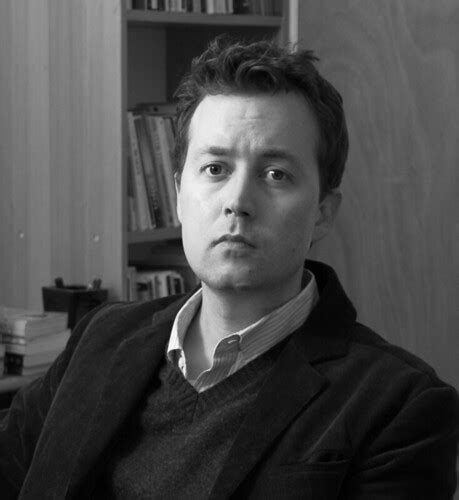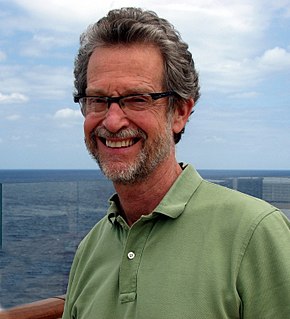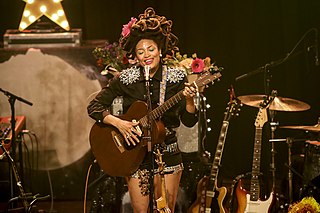A Quote by Jonathan Dee
That's really the essence of what any fiction writer does. Some of it is research-based, but most of it is a really long-term, imaginative, empathetic effort to see the world the way someone whose experiences remote from yours might see it. Not every writer works that way; some writers make a wonderful career out of writing books that adhere very closely to how they view the world. The further I go with this, the more interested I get in trying to imagine my way into other perspectives that at first seem foreign to me.
Quote Topics
Adhere
Any
Based
Books
Career
Closely
Does
Effort
Empathetic
Essence
Every
Experiences
Fiction
Fiction Writer
First
Foreign
Further
Get
Go
How
Imaginative
Imagine
Interested
Long
Long-Term
Make
Me
Might
More
Most
My Way
Other
Out
Perspectives
Really
Really Long
Remote
Research
See
Seem
Some
Someone
Term
Trying
Very
View
Way
Whose
Wonderful
Works
World
Writer
Writers
Writing
Yours
Related Quotes
I think what people really want is fiction that in some tiny way makes their life more meaningful and makes the world seem like a richer place. The world is awfully short on joy and richness, and I think to some extent it’s the fiction writer’s job to salvage some of that and to give it to us in ways that we can believe in.
Being a fiction writer is really like being an actor, because if you're going to write convincingly it has to sound right and play right. The only way that works is to emotionally and technically act out and see the scene you're in. There's no better job in the world, because when I sit down at that computer I'm the world's best forensics expert, if that's what I'm writing about that day. Or I'm some crazed psycho running down a dark alley. Or I'm a gorgeous woman looking to find a man that night. Whatever! But I'm all of those things, every day. How can you beat that?
I was writing at a really young age, but it took me a long time to be brave enough to become a published writer, or to try to become a published writer. It's a very public way to fail. And I was kind of scared, so I started out as a ghost writer, and I wrote for other series, like Disney 'Aladdin' and 'Sweet Valley' and books like that.
I have a process that I seem to always, to some degree, as a writer, adhere to, but I certainly have never imposed the way I write a novel on my students. When I had students, I never said, "You should never start writing a novel until you have the last sentence." I never did that, and I wouldn't do it now, but people now seem so interested in the process [of writing fiction] that I have to constantly make it clear when I describe mine that I'm not being prescriptive. I'm not proselytizing.
There's the fact that American fiction is basically the most apolitical fiction on the globe. A South American writer wouldn't dare think of writing a novel if it didn't allude to the system into which these people are orchestrated - or an Eastern European writer, or a Russian writer, or a Chinese writer. Only American writers are able to imagine that the government and the corporations - all of it - seem to have no effect whatsoever.
When you find a writer who really is saying something to you, read everything that writer has written and you will get more education and depth of understanding out of that than reading a scrap here and a scrap there and elsewhere. Then go to people who influenced that writer, or those who were related to him, and your world builds together in an organic way that is really marvelous.
You can't really get the full joy out of life unless you really go for it. You just have to go into it and stay under some kind of hope or illusion that it's going to work. But as you get older, or the more experiences you have, or whatever it is that tells you how this stuff works, you also know that if you go all the way into it, there's the risk of losing everything but you don't have a choice.
There are many other writers whose work I admire tremendously, but none whose work struck me at just the right young age. Jack Vance taught me that speculative fiction, science fiction, could be wonderfully and liberatingly stylistic. It didn't have to be pulp stuff. He really changed my writing and my view of science fiction, so if nothing else, my little homage to him in the novelette I wrote for that anthology is my thank-you to him. He helped me see that any genre can have excellent writing in it.
The most important thing for a writer to do is to write. It really doesn't matter what you write as long as you are able to write fluidly, very quickly, very effortlessly. It needs to become not second nature but really first nature to you. And read; you need to read and you need to read excellent books and then some bad books. Not as many bad books, but some bad books, so that you can see what both look like and why both are what they are.







































